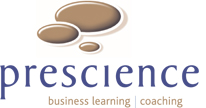We are in the privileged position of working with a many people, across differing managerial levels, from various client organisations across a wide variety of sectors and we’re finding they tend to face a common challenge. By and large people say they are too busy to be as effective as they would like to be!
It’s not that the individuals are bad at planning or prioritising it’s that, in today’s matrix structures, key people are involved in numerous cross-functional activities and their views and inputs are being sought almost continuously to help shape and inform decision making. (see Harvard Business Review January – February 2016 ‘Collaborative Overload’ for further insight on this topic)
We don’t know the extent to which this accords with your own experience, but trying to get 4 -5 ‘necessary’ decision makers together in anything less than a four-five week window, be that real-time or virtually, is nigh on impossible. I recently bumped into three Prescience alumni who were having an off-site evening meeting because it was ‘the only time they could get together’
So when we discuss what a typical working day is like for most people it is invariably referred to as ‘full-on’, with lots of activities because what organisations target and value is ‘outputs’. Now there is absolutely nothing wrong with that per se, we are all required to achieve outputs – the problem lies in how well those activities are being performed.
We are great advocates of Kolb’s Learning Cycle as illustrated below, and with which you are probably familiar. The key is that this doesn’t just apply in the context of L&D – it is the fundamental source of sustainable performance.

In uncertain times, when organisations are called upon to be highly responsive in dealing with new and diverse challenges improving performance requires highly effective organisational learning. Bill Taylor’s January 2017 Harvard Business Review article was very aptly titled in asking ‘Are You Learning as fast as the World Is Changing?’
To effectively learn – and improve whatever it is we are doing – individuals and organisations need to complete the Learning Cycle. Yet how much time are individual’s affording to reviewing the outcomes of their actions, what’s working well, what’s working less well and how that might be improved? How much time is spent sharing such learning, insights and best practice – how often can people get together to discuss areas for improvement and share feedback? And critically, in today’s uncertain world, to what extent can people practice and ‘try-out’ differing ways of doing things in the aim of improving on current performance?
And this is the crux of the issue – in challenging times there can often be a tendency to ‘do more of the same – quicker’ – it seldom works as people get tied up in more and more ‘activity’. Far more important arguably is the need to review what it is we’re actually doing and how we’re doing it – are people affording their time to the things that matter and are they, and the organisation as whole, learning? Perhaps more than ever what’s actually called for is time for a little considered review, reflection and feedback and to be able to discuss challenges and issues with colleagues in a timely manner which in itself, arguably, is an act of Leadership.


